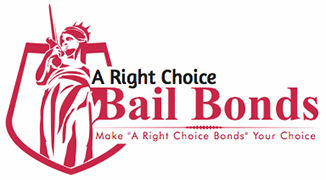FAQs – Bail Bonds
What happens when you are arrested?
While under arrest, you will first be read your rights. The officer will then transport you to the local police station, jail, or detention facility. You’ll be allowed a phone call to speak with an attorney should you choose to acquire one for the case. Next, the officers will explain the general charges. Then, you’ll be processed, which includes photographs and fingerprinting. At the same time, the officer will look for outstanding warrants.
What are your rights when under arrest?
When anyone is arrested, police follow certain legal procedures during and after the arrest process. Individuals under arrest have certain rights, which include:
- You have the right to remain silent and refuse to answer questioning.
- Anything you say may be used against you in court.
- You have the right to consult an attorney and to have an attorney present during police questioning.
- If you cannot afford an attorney, the court will appoint one for you before questioning.
- If you answer questions without an attorney, you retain the right to stop answering questions and speak with an attorney before continuing.
How long does it take to get out of jail?
Release depends on the severity of the charges. The more severe the charges, the longer release will take. However, once you or a loved one speaks with a licensed bond agent, the release should be complete within a matter of hours. The time it takes to officially release a defendant depends on the facility, as processing must be completed beforehand.
Why can’t I bond myself?
The court will not allow an individual to bond themselves due to the risk. If you hire a bond agency, the agents employed there have a financial reason to ensure you remain within the area and stick to the court schedule. If you were to bond yourself, there are no guarantees that you will stick around.
What is and is not good collateral?
Typically, good collateral is anything the bail bond agency can sell to recoup costs. Anything the agency cannot sell is considered worthless collateral, while good collateral includes:
- Electronics
- Firearms
- Jewelry
- Antiques
- Motorhomes
- Boats
- Cars
- Homes
When do I get my collateral back?
We return collateral once the case is complete. Once the final paperwork has gone through, which typically takes 7-10 business days, we release collateral. Of course, the full release is dependent on whether you owe money on the bond or not. You must pay the total amount.
What are the chances that a person will be released on their own recognizance?
Most courts impose specific conditions for “own recognizance” release. These conditions prohibit the individual from leaving the area while charges are outstanding. A criminal court judge considers:
- The severity of the crime;
- The suspect’s criminal record;
- Any danger posed to the public; and
- The suspect’s ties to the community
What happens if the person does not appear in court as promised?
If you fail to appear in court on the required date, the court issues a warrant for your arrest. Any bail you have posted is forfeit. The bond you have acquired is also forfeit. Furthermore, the court may include additional charges.
